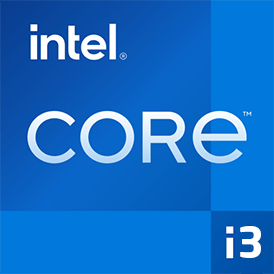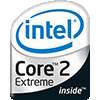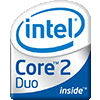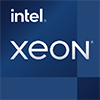
Intel Core i3-4005U Benchmark, Test and specs
Last updated:
The Intel Core i3-4005U has 2 cores with 4 threads and is based on the 4. gen of the Intel Core i3 series. The processor uses a mainboard with the BGA 1168 socket and was released in Q3/2013. The Intel Core i3-4005U scores 416 points in the Geekbench 5 single-core benchmark. In the Geekbench 5 multi-core benchmark, the result is 956 points.

| Name: | Intel Core i3-4005U |
|---|---|
| Family: | Intel Core i3 (205) |
| CPU group: | Intel Core i 4000U (26) |
| Architecture: | Haswell U |
| Segment: | Mobile |
| Generation: | 4 |
| Predecessor: | -- |
| Successor: | Intel Core i3-5005U |
CPU Cores and Base Frequency
The Intel Core i3-4005U has 2 CPU cores and can calculate 4 threads in parallel. The clock frequency of the Intel Core i3-4005U is 1.70 GHz. The number of CPU cores greatly affects the speed of the processor and is an important performance indicator.
| CPU Cores / Threads: | 2 / 4 |
|---|---|
| Core architecture: | normal |
| Cores: | 2x |
| Hyperthreading / SMT: | Yes |
|---|---|
| Overclocking: | No |
| Frequency: | 1.70 GHz |
| Turbo Frequency (1 Core): | -- |
| Turbo Frequency (2 Cores): | -- |
Internal Graphics
The Intel Core i3-4005U has integrated graphics, called iGPU for short. Specifically, the Intel Core i3-4005U uses the Intel HD Graphics 4400, which has 160 texture shaders and 20 execution units. The iGPU uses the system's main memory as graphics memory and sits on the processor's die.
| GPU name: | Intel HD Graphics 4400 |
|---|---|
| GPU frequency: | 0.20 GHz |
| GPU (Turbo): | 0.95 GHz |
| Compute units: | 20 |
| Shader: | 160 |
| Hardware Raytracing: | No |
| Release date: | Q2/2013 |
| Max. displays: | 3 |
|---|---|
| Generation: | 7.5 |
| Direct X: | 11.1 |
| Technology: | 22 nm |
| Max. GPU Memory: | 2 GB |
| Frame Generation: | No |
Hardware codec support
A photo or video codec that is accelerated in hardware can greatly accelerate the working speed of a processor and extend the battery life of notebooks or smartphones when playing videos.
| h265 / HEVC (8 bit): | No |
|---|---|
| h265 / HEVC (10 bit): | No |
| h264: | Decode / Encode |
| VP8: | No |
| VP9: | No |
| AV1: | No |
|---|---|
| AVC: | Decode / Encode |
| VC-1: | Decode |
| JPEG: | Decode |
Memory & PCIeThe processor can use up to 16 GB memory in 2 (Dual Channel) memory channels. The maximum memory bandwidth is 25.6 GB/s. The memory type as well as the amount of memory can greatly affect the speed of the system. |
|
| Memory type: | Memory bandwidth: |
|---|---|
| DDR3-1600 | 25.6 GB/s |
| Max. Memory: | 16 GB |
| Memory channels: | 2 (Dual Channel) |
| ECC: | No |
| PCIe: | 2.0 x 10 |
| PCIe Bandwidth: | 5.0 GB/s |
Thermal ManagementThe thermal design power (TDP for short) of the processor is 15 W. The TDP specifies the necessary cooling solution that is required to cool the processor sufficiently. The TDP usually gives a rough idea of the actual power consumption of the CPU. |
|
|---|---|
| TDP (PL1 / PBP): | 15 W |
| TDP (PL2): | -- |
| TDP up: | -- |
| TDP down: | -- |
| Tjunction max.: | -- |
Technical details
The Intel Core i3-4005U is made in 22 nm. The smaller the manufacturing process of a CPU, the more modern and energy-efficient it is. Overall, the processor has 3.00 MB cache. A large cache can greatly speed up the processor's speed in some cases such as games.
| Technology: | 22 nm |
|---|---|
| Chip design: | Monolithic |
| Socket: | BGA 1168 |
| L2-Cache: | -- |
| L3-Cache: | 3.00 MB |
| AES-NI: | Yes |
| Operating systems: | Windows 10, Linux |
| Virtualization: | VT-x, VT-x EPT, VT-d |
|---|---|
| Instruction set (ISA): | x86-64 (64 bit) |
| ISA extensions: | SSE4.1, SSE4.2, AVX2 |
| Release date: | Q3/2013 |
| Release price: | -- |
| Part Number: | -- |
| Documents: | Technical data sheet |
Rate this processor
Benchmark results

The benchmark results for the Intel Core i3-4005U have been carefully checked by us. We only publish benchmark results that have been created by us or that have been submitted by a visitor and then checked by a team member. All results are based on and fullfill our benchmark guidelines.
Screenshots:
Screenshots:
Geekbench 5, 64bit (Single-Core)
Geekbench 5 is a cross plattform benchmark that heavily uses the systems memory. A fast memory will push the result a lot. The single-core test only uses one CPU core, the amount of cores or hyperthreading ability doesn't count.

|
Intel Core i7-680UM
2C 4T @ 2.53 GHz |
||

|
Intel Core2 Extreme X6800
2C 2T @ 2.93 GHz |
||

|
Intel Core 2 Extreme QX6850
4C 4T @ 3.00 GHz |
||
|
|
Intel Core i3-4005U
2C 4T @ 1.70 GHz |
||

|
AMD Athlon II X2 255
2C 2T @ 3.10 GHz |
||

|
Intel Core i3-4010U
2C 4T @ 1.70 GHz |
||

|
Intel Core2 Duo E8200
2C 2T @ 2.66 GHz |
||
Geekbench 5, 64bit (Multi-Core)
Geekbench 5 is a cross plattform benchmark that heavily uses the systems memory. A fast memory will push the result a lot. The multi-core test involves all CPU cores and taks a big advantage of hyperthreading.

|
Intel Core i3-2328M
2C 4T @ 2.20 GHz |
||

|
Intel Core i3-2330E
2C 4T @ 2.20 GHz |
||

|
Intel Core i3-2330M
2C 4T @ 2.20 GHz |
||
|
|
Intel Core i3-4005U
2C 4T @ 1.70 GHz |
||

|
Intel Core i5-4202Y
2C 4T @ 1.60 GHz |
||

|
Intel Core i3-4010U
2C 4T @ 1.70 GHz |
||

|
MediaTek Helio P35
8C 8T @ 2.30 GHz |
||
Geekbench 6 (Single-Core)
Geekbench 6 is a benchmark for modern computers, notebooks and smartphones. What is new is an optimized utilization of newer CPU architectures, e.g. based on the big.LITTLE concept and combining CPU cores of different sizes. The single-core benchmark only evaluates the performance of the fastest CPU core, the number of CPU cores in a processor is irrelevant here.

|
Intel Core i5-2430M
2C 4T @ 3.00 GHz |
||

|
Intel Core i5-2435M
2C 4T @ 3.00 GHz |
||

|
Intel Pentium J6426
4C 4T @ 3.00 GHz |
||
|
|
Intel Core i3-4005U
2C 4T @ 1.70 GHz |
||

|
Intel Core i3-3210
2C 4T @ 3.20 GHz |
||

|
Intel Core i3-4010U
2C 4T @ 1.70 GHz |
||

|
Intel Core i7-3517U
2C 4T @ 3.00 GHz |
||
Geekbench 6 (Multi-Core)
Geekbench 6 is a benchmark for modern computers, notebooks and smartphones. What is new is an optimized utilization of newer CPU architectures, e.g. based on the big.LITTLE concept and combining CPU cores of different sizes. The multi-core benchmark evaluates the performance of all of the processor's CPU cores. Virtual thread improvements such as AMD SMT or Intel's Hyper-Threading have a positive impact on the benchmark result.

|
Samsung Exynos 9611
8C 8T @ 2.30 GHz |
||

|
Intel Celeron G4900
2C 2T @ 3.10 GHz |
||

|
Intel Core i3-3210
2C 4T @ 3.20 GHz |
||
|
|
Intel Core i3-4005U
2C 4T @ 1.70 GHz |
||

|
Intel Core i3-4010U
2C 4T @ 1.70 GHz |
||

|
Intel Core i5-3210M
2C 4T @ 3.10 GHz |
||

|
Intel Core i5-3437U
2C 4T @ 1.90 GHz |
||
Cinebench R20 (Single-Core)
Cinebench R20 is the successor of Cinebench R15 and is also based on the Cinema 4 Suite. Cinema 4 is a worldwide used software to create 3D forms. The single-core test only uses one CPU core, the amount of cores or hyperthreading ability doesn't count.

|
AMD Phenom II X3 720
3C 3T @ 2.80 GHz |
||

|
Intel Core m5-6Y57
2C 4T @ 2.80 GHz |
||

|
AMD Athlon II X4 645
4C 4T @ 3.10 GHz |
||
|
|
Intel Core i3-4005U
2C 4T @ 1.70 GHz |
||

|
Intel Celeron N4100
4C 4T @ 2.40 GHz |
||

|
AMD Athlon II X4 640
4C 4T @ 3.00 GHz |
||

|
Intel Xeon E7-8870 v2
15C 30T @ 2.90 GHz |
||
Cinebench R20 (Multi-Core)
Cinebench R20 is the successor of Cinebench R15 and is also based on the Cinema 4 Suite. Cinema 4 is a worldwide used software to create 3D forms. The multi-core test involves all CPU cores and taks a big advantage of hyperthreading.

|
Intel Core m5-6Y57
2C 4T @ 2.20 GHz |
||

|
Intel Core m3-8100Y
2C 4T @ 1.10 GHz |
||

|
Intel Celeron N4120
4C 4T @ 2.50 GHz |
||
|
|
Intel Core i3-4005U
2C 4T @ 1.70 GHz |
||

|
Intel Celeron N4100
4C 4T @ 2.40 GHz |
||

|
Intel Core i7-4510U
2C 4T @ 2.70 GHz |
||

|
Intel Core i3-2330M
2C 4T @ 2.20 GHz |
||
iGPU - FP32 Performance (Single-precision GFLOPS)
The theoretical computing performance of the internal graphics unit of the processor with simple accuracy (32 bit) in GFLOPS. GFLOPS indicates how many billion floating point operations the iGPU can perform per second.

|
AMD A6-6400K
AMD Radeon HD 8470D @ 0.80 GHz |
||

|
AMD A6-6420K
AMD Radeon HD 8470D @ 0.80 GHz |
||

|
AMD A9-9410
AMD Radeon R5 (Stoney Ridge) @ 0.80 GHz |
||
|
|
Intel Core i3-4005U
Intel HD Graphics 4400 @ 0.95 GHz |
||

|
Intel Core i3-4025U
Intel HD Graphics 4400 @ 0.95 GHz |
||

|
Intel Core i7-3770S
Intel HD Graphics 4000 @ 1.15 GHz |
||

|
Intel Core i7-3632QM
Intel HD Graphics 4000 @ 1.15 GHz |
||
Estimated results for PassMark CPU Mark
Some of the CPUs listed below have been benchmarked by CPU-monkey. However the majority of CPUs have not been tested and the results have been estimated by a CPU-monkey’s secret proprietary formula. As such they do not accurately reflect the actual Passmark CPU mark values and are not endorsed by PassMark Software Pty Ltd.

|
AMD A6-7000
2C 2T @ 3.00 GHz |
||

|
AMD A6-5200
4C 4T @ 2.80 GHz |
||

|
MediaTek Helio P25
8C 8T @ 2.60 GHz |
||
|
|
Intel Core i3-4005U
2C 4T @ 1.70 GHz |
||

|
Intel Core i3-560
2C 4T @ 3.33 GHz |
||

|
Intel Core i3-4010U
2C 4T @ 1.70 GHz |
||

|
AMD A6-1450
4C 4T @ 1.40 GHz |
||
CPU-Z Benchmark 17 (Single-Core)
The CPU-Z benchmark measures a processor's performance by measuring the time it takes the system to complete all benchmark calculations. The faster the benchmark is completed, the higher the score.

|
Intel Core i5-4200U
2C 4T @ 2.30 GHz |
||

|
Intel Core i3-3110M
2C 4T @ 2.40 GHz |
||

|
Intel Core i3-5005U
2C 4T @ 2.00 GHz |
||

|
Intel Core i3-6006U
2C 4T @ 2.00 GHz |
||

|
AMD Phenom II X4 955
4C 4T @ 3.20 GHz |
||
|
|
Intel Core i3-4005U
2C 4T @ 1.70 GHz |
||

|
Intel Core m3-7Y30
2C 4T @ 2.00 GHz |
||
CPU-Z Benchmark 17 (Multi-Core)
The CPU-Z benchmark measures a processor's performance by measuring the time it takes the system to complete all benchmark calculations. The faster the benchmark is completed, the higher the score.

|
Intel Pentium E6500
2C 2T @ 2.93 GHz |
||

|
Intel Core2 Duo E8400
2C 2T @ 3.00 GHz |
||

|
Intel Pentium 2020M
2C 2T @ 2.40 GHz |
||
|
|
Intel Core i3-4005U
2C 4T @ 1.70 GHz |
||

|
AMD 3020e
2C 4T @ 1.20 GHz |
||

|
Intel Core i3-4010U
2C 4T @ 1.70 GHz |
||

|
Intel Core2 Duo E7400
2C 2T @ 2.80 GHz |
||
Cinebench R15 (Single-Core)
Cinebench R15 is the successor of Cinebench 11.5 and is also based on the Cinema 4 Suite. Cinema 4 is a worldwide used software to create 3D forms. The single-core test only uses one CPU core, the amount of cores or hyperthreading ability doesn't count.

|
AMD Phenom II X3 710
3C 3T @ 2.60 GHz |
||

|
AMD Phenom II X4 810
4C 4T @ 2.60 GHz |
||

|
AMD Phenom II X4 910
4C 4T @ 2.60 GHz |
||
|
|
Intel Core i3-4005U
2C 4T @ 1.70 GHz |
||

|
AMD A10-6700
4C 4T @ 4.30 GHz |
||

|
AMD Athlon II X4 630
4C 4T @ 2.80 GHz |
||

|
Intel Pentium 3556U
2C 2T @ 1.70 GHz |
||
Cinebench R15 (Multi-Core)
Cinebench R15 is the successor of Cinebench 11.5 and is also based on the Cinema 4 Suite. Cinema 4 is a worldwide used software to create 3D forms. The multi-core test involves all CPU cores and taks a big advantage of hyperthreading.

|
AMD Phenom II X2 511
2C 2T @ 3.40 GHz |
||

|
AMD Phenom II X2 565
2C 2T @ 3.40 GHz |
||

|
AMD Phenom II X2 B59
2C 2T @ 3.40 GHz |
||
|
|
Intel Core i3-4005U
2C 4T @ 1.70 GHz |
||

|
AMD A8-7200P
4C 4T @ 2.80 GHz |
||

|
Intel Core i3-4010U
2C 4T @ 1.70 GHz |
||

|
Intel Celeron G1820T
2C 2T @ 2.40 GHz |
||
Benchmarks

Geekbench 5 (SC)
2,488 entries
2,488 entries

Geekbench 5 (MC)
2,461 entries
2,461 entries

Geekbench 6 (SC)
1,754 entries
1,754 entries

Geekbench 6 (MC)
1,702 entries
1,702 entries

Cinebench R20 (SC)
656 entries
656 entries

Cinebench R20 (MC)
604 entries
604 entries

FP32 SP (iGPU)
2,026 entries
2,026 entries

PassMark CPU-Mark
2,391 entries
2,391 entries

CPU-Z Benchmark 17 (SC)
231 entries
231 entries

CPU-Z Benchmark 17 (MC)
733 entries
733 entries

Cinebench R15 (SC)
1,106 entries
1,106 entries

Cinebench R15 (MC)
1,101 entries
1,101 entries

Geekbench 3 (SC)
942 entries
942 entries

Geekbench 3 (MC)
938 entries
938 entries

Cinebench R11.5 (SC)
825 entries
825 entries

Cinebench R11.5 (MC)
836 entries
836 entries
Popular comparisons
back to index




